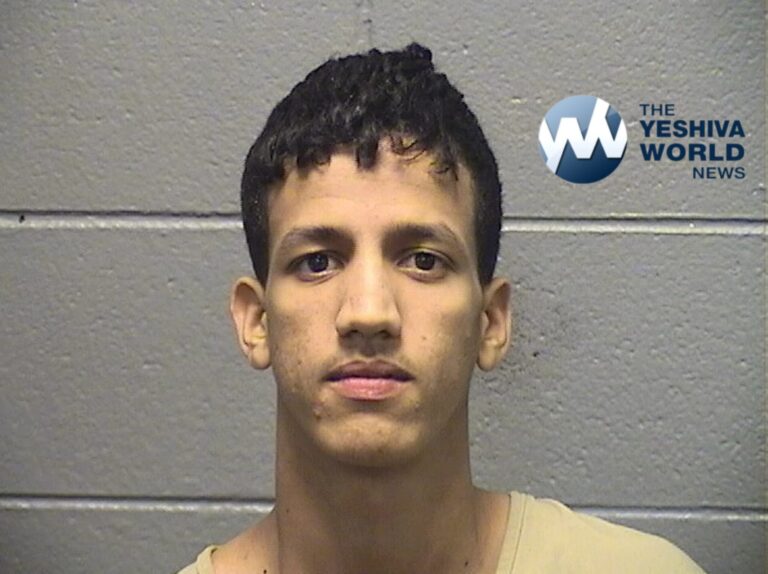A Michigan judge ruled Tuesday that former President Donald Trump will remain on the state’s primary ballot, dealing a blow to the effort to stop Trump’s candidacy with a Civil War-era Constitutional clause.
It marks the second time in a week that a state court declined to remove Trump from a primary ballot under the insurrection provision of the 14th Amendment.
In Michigan, Court of Claims Judge James Redford rejected arguments that Trump’s role in the Jan. 6, 2021, attack on the U.S. Capitol meant the court had to declare him ineligible for the presidency. Redford wrote that, because Trump followed state law in qualifying for the primary ballot, he cannot remove the former president.
Additionally, he said it should be up to Congress to decide whether Trump is disqualified under the section of the U.S. Constitution that bars from office a person who “engaged in insurrection.”
Redford said deciding whether an event constituted “a rebellion or insurrection and whether or not someone participated in it” are questions best left to Congress and not “one single judicial officer.” A judge, he wrote, “cannot in any manner or form possibly embody the represented qualities of every citizen of the nation — as does the House of Representatives and the Senate.”
Free Speech For People, a liberal group that has brought 14th Amendment cases in a number of states, said it will immediately appeal the ruling to the Michigan Court of Appeals, but also asked the state supreme court to step in and take the case on an expedited basis.
“We are disappointed by the trial court’s decision, and we’re appealing it immediately,” said Ron Fein, Legal Director of Free Speech For People.
In a statement, Trump campaign spokesman Steven Cheung rattled off other losses in the long-shot effort to bar Trump from the ballot.
“Each and every one of these ridiculous cases have LOST because they are all un-Constitutional left-wing fantasies orchestrated by monied allies of the Biden campaign seeking to turn the election over to the courts and deny the American people the right to choose their next president,” Cheung said.
Left-learning groups have filed similar lawsuits in other states seeking to bar Trump from the ballot, portraying him as inciting the Jan. 6 attack, which was intended to stop Congress from certifying Joe Biden’s 2020 presidential election win.
The two-sentence clause in the 14th Amendment has been used only a handful of times since the years after the Civil War. It’s likely that one of the active cases eventually will be appealed to the U.S. Supreme Court, which has never ruled on the insurrection clause.
Last week, the Minnesota Supreme Court sidestepped the issue by ruling that Trump could stay on that state’s primary ballot because the election is a party-run contest during which constitutional eligibility isn’t an issue. It left the door open to another lawsuit to keep Trump off the state’s general election ballot.
A Colorado judge is expected to rule on a similar lawsuit there by Friday. Closing arguments in that case are scheduled for Wednesday.
(AP)












One Response
The argument to disqualify Trump is wrong for at least four separate reasons:
1. The Capitol riot wasn’t an insurrection. At least some of the Antifa/BLM riots definitely were; the Capitol event was barely even a riot, but at any rate none of the participants had any intention of overthrowing the USA, so it can’t have been an insurrection.
2. Even if it had been an insurrection, Trump played no role in it, so he couldn’t be disqualified.
3. Even if he had been, the presidency is not one of the offices from which insurrectionists are barred. So he’d qualify for the presidency even if he were actually convicted of insurrection and were sitting in prison for it.
4. Even if none of this were the case, the Amnesty Act of 1872 explicitly removes the disability from “any person whomsoever”, with certain exceptions. Trump is a person whomsoever, and is not one of the exceptions, so even if he were guilty of insurrection, and he were running for an office from which insurrectionists are barred, he would still be qualified.
As the Colorado court pointed out, in the case of the primary there is a fifth reason, which is that there is no law saying that only qualified candidates can be on the ballot in a party primary. A primary is an internal process of the relevant party, so if the party rules let him run no court can order him off the ballot.